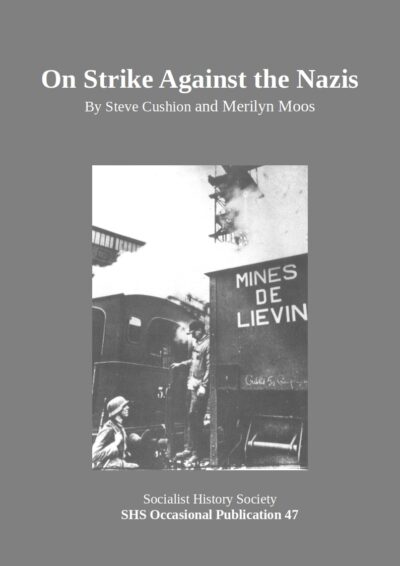 The e-book can be downloaded from here…
The e-book can be downloaded from here…
Class Struggle and Resistance in Northern France and Belgium during the Second World War
By Steve Cushion
The class struggle did not disappear during the Second World War following the occupation of Europe by the German armed forces. In northern France and Belgium a shop steward-based movement quickly emerged, mainly led by communist activists, that attempted to defend and advance wages and conditions and, above all access to sufficient food for working class families. In so doing, they organised an impressive series of strikes that involved nearly a quarter of a million workers and won some significant material gains although at the cost of severe repression with many activists being killed in prison or while resisting arrest. A significant number of these militants, when on the run from the forces of repression, fought back with armed attacks and sabotage. The hunted became the hunters.
The International Transport Workers’ Federation and Working Class Resistance to the Nazis
By Merilyn Moos
The leadership of the trade unions and the social democratic parties of Europe did not play any significant role in the resistance to the growth and spread of fascism in the 1930s and 40s. The major exception to this pattern was the International Transport Workers’ Federation led by Edo Fimmen, which defied convention by organising illegal underground resistance groups amongst German seafarers, dockers and railway workers as well as bringing aid and solidarity to the republican forces during the Spanish civil war.
This pamphlet examines the connection between the class struggle and anti-fascist politics as well as the relationship between mass action and the armed struggle under a repressive regime. In so doing, we add a discussion of class into the historiography of the Second World War which, with a few exceptions, is dominated by an analysis based on an assumption of patriotism and class collaboration, and which explains the Nazis and other fascists as representing “evil”, without looking for the class interests they represented.
Steve Cushion and Merilyn Moos are joint authors of Anti-Nazi Germans